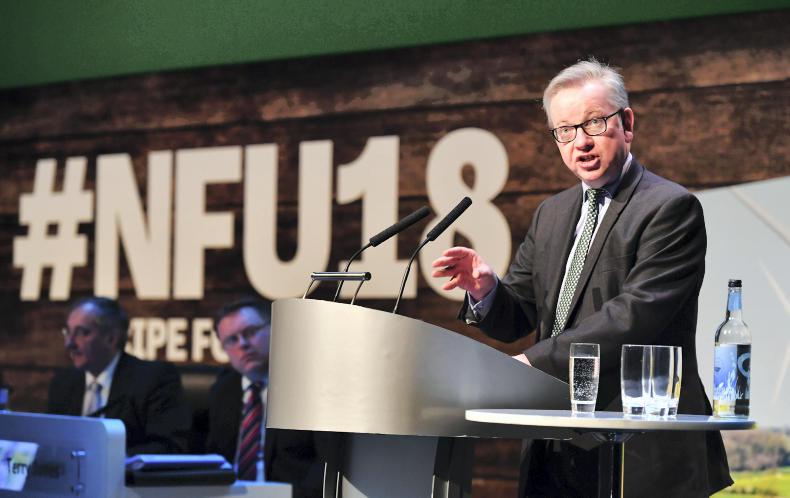The twists and turns of Brexit positioning are starting to resemble a soap opera. In the earlier part of this week, we had the UK minister with responsibility for agriculture attending the National Farmers' Union AGM. There, he delivered a speech that few would have taken issue with. As well as acknowledging the importance of farming to the UK and getting wide approval for promises to eliminate, reduce or improve inspections, he went into the big message.
Alignment with EU
That was that the UK would stay aligned to the production, welfare and environmental standards of the EU, if not indeed raising these. He went further in that he promised that if these standards were such that they prevented a trade deal with the USA, then so be it was his position. That sounded quite a distance from the position in the autumn when the US trade secretary was advising the UK to align with the USA as opposed to the EU to secure a trade deal. At the time, the UK international trade secretary Liam Fox was suggesting that the UK could accept chlorinated chicken, the wash that is applied in the US processing system.
Also this week, the minister with responsibility for negotiating Brexit was in Austria and again a conciliatory speech was delivered suggesting that the UK would maintain EU standards. Against this backdrop, it seemed that the UK was set on an alignment with the EU and perhaps the customs union issue could be resolved.
Managed divergence
However, the big government think-in on Thursday seems to have reversed that position again. The outcome of the away day is a new catchphrase – managed divergence. The Prime Minister is to reveal the detailed UK position in a speech next Friday but in the meantime, any type of divergence doesn’t sound good from the point of view of maintaining seamless trade between Ireland and the UK.
The mood music in Brussels at the end of the week was again gloomy, with council president Donald Tusk accusing the UK of returning to cherry-picking its future trading relationship by picking and choosing what it would align to and what it wouldn’t. It is clear that at the heads of state council, where the new post-2020 budget was getting serious consideration, the mood towards the UK was not positive.
It is now as the council and commission consider the ambitions for the next CAP budget that the absence of the UK is particularly felt. Their departure will mean a €10-€12bn deficit in the money available at a time when the EU has ambitions to do much more, particularly in defence and refugees. From the viewpoint of Irish farmers, eyes will be firmly focused on what is done with the CAP, which will be under extreme pressure.






 This is a subscriber-only article
This is a subscriber-only article











SHARING OPTIONS: